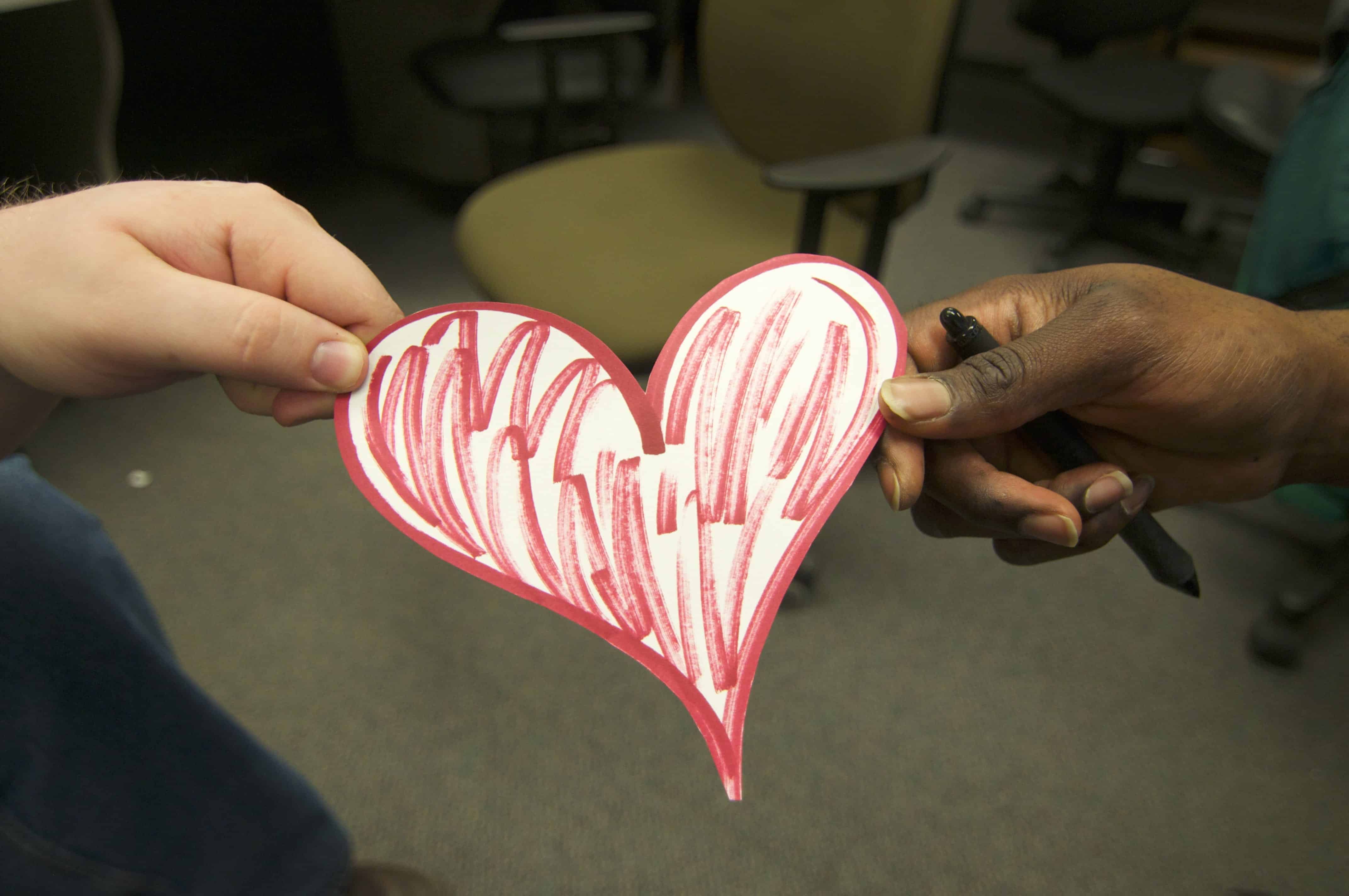Have a heart!

Campaign seeks to reform and improve education for First Nations
Article: Eman Bare – News Writer
[dropcaps round=”no”]T[/dropcaps]his Valentine’s Day while many enjoyed a day spent with their loved one, Amnesty International members took part in the annual Have a Heart Campaign.
This campaign is led yearly by the First Nations Child and Family Caring Society of Canada, or the Caring Society, a non-profit organization that advocates for the rights of First Nations children. The aim is to raise awareness about the disadvantage Aboriginal youth living on reserves face in terms of their education.
The Have Heart Campaign came to life in 2012, and was triggered by a complaint formed by the Assembly of First Nations (AFN) and the Caring Society.
Although provincial governments are usually responsible for funding educational programs, the Federal government provides funding for the educational service of the Aboriginal population.
According to Amnesty International, the Federal government provides less funding for each Aboriginal student than the provincial government provides for non-Aboriginal students.
In 2007, the Caring Society and AFN filed a formal complaint against Aboriginal Affairs and Northern Development Canada (AANDC). It stated that AANDC had a history of providing reserves with less government funding for educational purposes, as opposed to the non-Aboriginal education system. The complaint alleged that non-Aboriginal children were given more funding, placing Aboriginal students at an academic disadvantage.
Although the case was later dismissed due to legal technicality, this complaint gave life to a movement that has been practiced by many Canadian cities. This year, Regina was among the cities to stand in solidarity with Aboriginal Children.
During the week of Feb. 14, Amnesty International Regina and the University of Regina Aboriginal Students Centre organized numerous events in honor of the campaign.
Among the panelists speaking at the event was Dr. Shauneen Pete, a professor at the University of Regina. She says that the campaign is an important way to readdress an issue that so far, has seen no solution.
“It’s another strategy. Certainly protests are another kind of strategy. We need all of the approaches that we can. Certainly holidays and events like Valentine’s Day can offer us opportunities to once again remind our political leadership that we still are concerned and that these issues have not passed away.”
Dr. Pete is an education professor at the University of Regina, and her research mainly includes anti-oppressive education, and decolonizing and indigenizing faculty work.
“First Nations kids coming from northern communities and reserve communities actually have a wealth of knowledge that goes unnoticed and it’s made invisible because we’re asking the wrong kinds of questions.”
Pete says that First Nations children often have their knowledge silenced and are forced to contain themselves in what she refers to as an “abusive manner.”
This year, in honor of Have a Heart day, the National Film Board made a documentary titled Hi-Ho! Mistahey about First Nations youth activism, free from Feb. 14 to 16.
The campaign also included letter writing, a staple of Amnesty International’s activism work. Over the week, participants were encouraged to write letters to the Prime Minister and other politicians, stating their disapproval of the current imbalance between Aboriginal and non-Aboriginal students.
Photographs were taken of event participants with signs that read, “I have a heart.” Valentine’s Day cards were also sold with proceeds being donated to the Caring Society.
[button style=”e.g. solid, border” size=”e.g. small, medium, big” link=”” target=””]Image: Emily Wright[/button]








